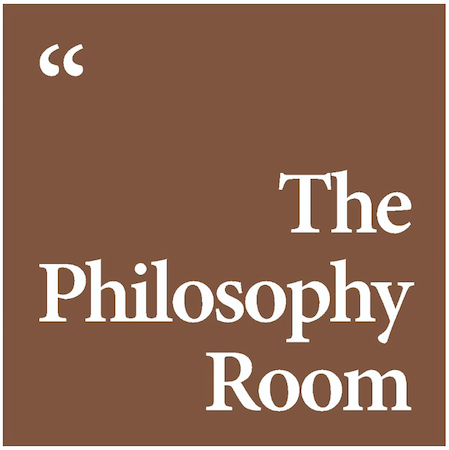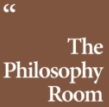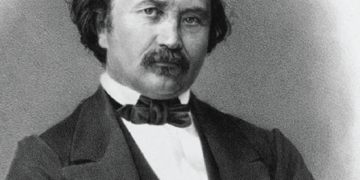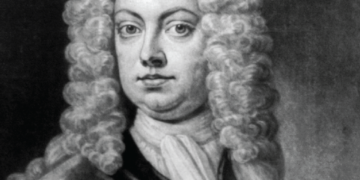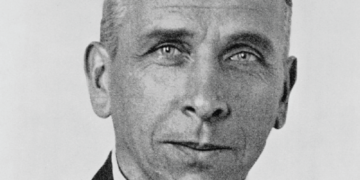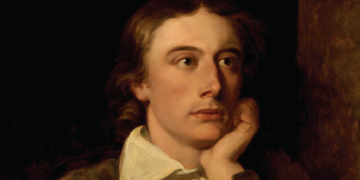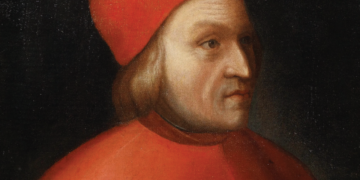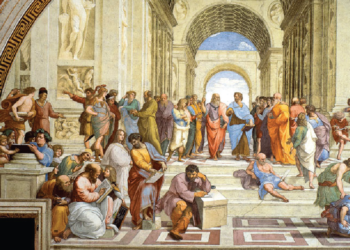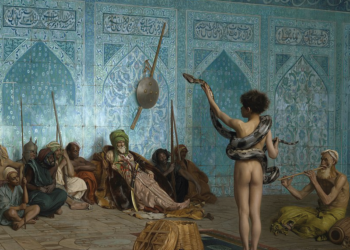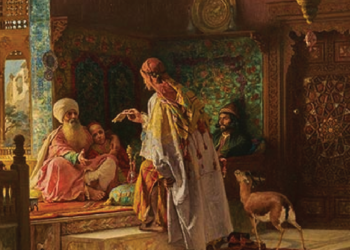George Bernard Shaw
1) His Biography
George Bernard Shaw, an eminent figure in the literary world, was born on July 26, 1856, in Dublin, Ireland. His early life was marked by financial struggles, as his father, a failed corn merchant, faced economic hardships. Despite these challenges, Shaw’s thirst for knowledge led him to the local library, where he voraciously consumed a wide range of literature. His autodidactic tendencies shaped his worldview and laid the foundation for his future as a prolific writer.
In 1876, Shaw moved to London, seeking to establish himself as a writer. His early years in the city were characterized by a series of odd jobs, including clerking and writing reviews. The turning point in his career came with the publication of his first novel, “Immaturity,” in 1879. Although the novel received mixed reviews, it marked the beginning of Shaw’s literary journey. His experiences as a music and theatre critic further honed his skills, providing him with a unique perspective on the arts.
Shaw’s literary output expanded with his involvement in the Fabian Society, a socialist group advocating for social reform. His essays and pamphlets during this period reflected his evolving political and social ideologies. The acclaimed play “Arms and the Man” (1894) marked a significant breakthrough in his career, showcasing his distinctive wit and satirical style. As a playwright, Shaw continued to challenge societal norms and question conventional wisdom, earning him both admiration and criticism.
Throughout his life, Shaw maintained a commitment to social and political causes. His involvement in the women’s suffrage movement and his outspoken advocacy for equality made him a controversial figure. Shaw’s inclination towards socialism and his disdain for capitalism were evident in works like “Major Barbara” (1905), where he critiqued the morality of war profiteering. His exploration of these themes solidified his reputation as a thought-provoking and influential writer.
Shaw’s personal life was as intriguing as his literary pursuits. His marriage to Charlotte Payne-Townshend in 1898 brought stability to his life, and the couple settled in the town of Ayot St. Lawrence. Despite the outward appearance of a conventional life, Shaw maintained an open marriage and had a complex relationship with actress Ellen Terry. These aspects of his personal life added layers to his public persona and contributed to the fascination surrounding him.
As Shaw entered his later years, he continued to be an active force in the literary and political arenas. His prolific output included plays like “Pygmalion” (1913), which later inspired the famous musical “My Fair Lady.” Shaw’s wit, sharp intellect, and enduring passion for social justice defined his legacy. He received numerous accolades, including the Nobel Prize in Literature in 1925. George Bernard Shaw’s remarkable life and contributions to literature and society left an indelible mark on the world, making him an enduring and influential figure in the realms of art and activism.
2) Main Works
Arms and the Man (1894):
Shaw’s “Arms and the Man” is a satirical comedy that satirizes the romanticized ideals of war and heroism. The play is set during the Serbo-Bulgarian War and revolves around the character of Captain Bluntschli, a pragmatic Swiss mercenary, challenging the traditional notions of valour and love. The play’s wit and clever dialogue established Shaw as a playwright with a distinctive voice, blending humour with social commentary.
Pygmalion (1913):
Perhaps one of Shaw’s most famous works, “Pygmalion” is a play that explores issues of class and social identity. The story follows Professor Henry Higgins, a phonetics expert, as he transforms Eliza Doolittle, a Cockney flower girl, into a refined lady. The play delves into themes of language, manners, and the impact of societal expectations on individual identity. “Pygmalion” continues to be relevant and has inspired various adaptations, including the popular musical “My Fair Lady.”
Major Barbara (1905):
In “Major Barbara,” Shaw delves into the moral complexities of war profiteering and the relationship between wealth and virtue. The protagonist, Barbara Undershaft, is a Salvation Army major who grapples with her father’s controversial profession as an arms dealer. The play confronts the audience with ethical dilemmas and challenges conventional notions of morality, reflecting Shaw’s keen interest in social issues and his critique of capitalism.
Man and Superman (1903):
This play, written in the form of a “Don Juan in Hell” dream sequence, explores the conflict between individualism and societal expectations. Shaw’s protagonist, John Tanner, is a modern Don Juan figure who grapples with the idea of marriage and the pursuit of a higher, more individualistic existence. The play is notable for its philosophical dialogues and innovative structure, providing a unique and thought-provoking theatrical experience.
Saint Joan (1923):
“Saint Joan” is Shaw’s historical drama that tells the story of Joan of Arc, exploring themes of faith, politics, and the nature of leadership. The play offers a nuanced portrayal of Joan, challenging traditional views of her as merely a religious figure. Shaw presents Joan as a complex and determined individual, raising questions about the intersection of personal conviction and the politics of power.
Candida (1894):
In “Candida,” Shaw examines the dynamics of marriage and societal expectations. The play revolves around the character of Candida, a woman caught between her husband, a clergyman named Morell, and a young poet named Marchbanks. The play’s exploration of love, fidelity, and personal freedom reflects Shaw’s keen understanding of human relationships and societal norms.
3) Main Themes
Social Critique and Reform:
George Bernard Shaw’s works are deeply rooted in a pervasive theme of social critique and reform. One key aspect of this theme is his critique of class structures and societal norms. In “Pygmalion,” for instance, Shaw challenges the rigidity of social classes by portraying the transformative journey of Eliza Doolittle from a working-class flower girl to a refined lady. Shaw’s original contribution lies in his belief that language and manners, rather than inherent qualities, define social status. This idea contrasts with traditional views prevalent in Victorian society, challenging thinkers like Thomas Carlyle, who emphasized the importance of individual character and hereditary qualities in determining social hierarchy.
Another dimension of Shaw’s social critique is evident in his exploration of the impact of economic systems on morality, exemplified in “Major Barbara.” The play questions the morality of wealth accumulation through arms dealing, challenging the prevailing capitalist ethos. Shaw’s critique of capitalism aligns with socialist thought, but his approach is distinct in its emphasis on moral ambiguity and the complexities of individual choices. This differs from Marxist perspectives that often present a more deterministic view of economic structures.
Additionally, Shaw’s plays often tackle gender roles and women’s emancipation, reflecting his commitment to social reform. In “Mrs. Warren’s Profession,” he boldly addresses the issue of prostitution, challenging Victorian hypocrisy surrounding women’s economic agency. Shaw’s advocacy for women’s rights aligns with the emerging feminist movements of his time, contributing a nuanced perspective to the broader discourse on gender equality.
Individualism and Identity:
Shaw’s exploration of individualism and identity is a recurrent theme in his works. In “Man and Superman,” he engages with the philosophical concept of the Superman, inspired by Friedrich Nietzsche’s Übermensch. Shaw’s contribution lies in his interpretation of the Superman as an individual who transcends societal constraints and embraces a higher, more individualistic existence. This contrasts with Nietzsche’s more existential and individual-centric approach, as Shaw intertwines the pursuit of individualism with social responsibilities.
The play “Candida” delves into the complexities of personal relationships and the quest for self-discovery. Shaw challenges conventional notions of marriage and love, presenting Candida as a woman with agency who navigates the expectations placed upon her. This theme reflects Shaw’s departure from traditional Victorian views on marriage and his advocacy for marriages based on mutual respect and personal fulfilment. In comparison to contemporaries like Oscar Wilde, Shaw’s approach to individualism emphasizes the potential for personal growth within the context of social relationships.
Furthermore, “Saint Joan” explores the individual’s relationship with faith and the consequences of challenging established norms. Shaw’s portrayal of Joan of Arc as a determined and independent figure challenges traditional views of religious devotion. Unlike other writers of his time, Shaw does not idealize Joan solely for her piety; instead, he presents her as a complex character whose actions stem from a combination of personal conviction and political acumen.
Morality and Ethics:
Shaw’s examination of morality and ethics is a central theme in many of his works. In “Major Barbara,” he confronts the moral dilemmas associated with the arms trade, questioning conventional notions of right and wrong. Shaw’s contribution lies in his exploration of the pragmatic aspects of morality, challenging absolute ethical standards. This contrasts with the moral absolutism present in the works of thinkers like Immanuel Kant, who argued for universal moral principles.
In “The Devil’s Disciple,” Shaw presents a narrative that challenges traditional notions of heroism and morality during wartime. Richard Dudgeon, the self-proclaimed “devil’s disciple,” undergoes a transformation that questions established moral norms. Shaw’s emphasis on individual agency and the unpredictability of human nature challenges deterministic views present in the works of philosophers like Thomas Hobbes, who argued for a more predictable human nature driven by self-interest.
Additionally, Shaw’s exploration of morality extends to the realm of personal relationships, as seen in “Candida.” The play questions the morality of societal expectations in relationships and challenges the notion of fidelity as the sole measure of virtue. Shaw’s nuanced approach to ethics contrasts with more conservative views prevalent in Victorian society, offering a fresh perspective on the complexities of moral decision-making.
Language and Communication:
A distinctive theme in Shaw’s works is his exploration of language and communication, particularly evident in “Pygmalion.” The play challenges the societal significance placed on accents and linguistic conventions as markers of class and identity. Shaw’s original contribution lies in his belief that one’s linguistic expression is malleable, emphasizing the power of education to redefine social standing. This contrasts with the deterministic views of linguists like Max Müller, who believed that language reflects inherent cultural and racial traits.
In “Arms and the Man,” Shaw uses language as a tool for satire, exposing the romanticized ideals of war. The character of Captain Bluntschli employs a pragmatic and straightforward language that contrasts with the lofty and idealistic rhetoric of other characters. Shaw’s use of language in this context serves as a commentary on the deceptive nature of war propaganda. In comparison to war poets like Rupert Brooke, who romanticized the concept of war, Shaw’s language deconstructs these idealized notions.
Moreover, Shaw’s exploration of communication extends to philosophical dialogues, as seen in “Man and Superman.” The play’s “Don Juan in Hell” dream sequence features extensive philosophical discussions on life, love, and the pursuit of individualism. Shaw’s use of dialogue as a vehicle for intellectual exploration aligns with the tradition of philosophical plays, drawing comparisons to the works of existentialist thinkers like Jean-Paul Sartre, who also utilized dialogue to explore complex philosophical concepts.
Religion and Spirituality:
Religion and spirituality emerge as significant themes in Shaw’s works, with “Saint Joan” being a notable example. In this play, Shaw presents a nuanced portrayal of Joan of Arc’s religious conviction and explores the tension between divine inspiration and political realities. Shaw’s contribution lies in his questioning of religious dogma and the intersection of faith and politics. This differs from more traditional religious narratives, offering a more complex and humanized perspective on religious figures.
Additionally, “Major Barbara” delves into the morality of religious institutions and their involvement in social issues. The character of Barbara Undershaft, a Salvation Army major, grapples with the moral implications of her father’s arms-dealing profession. Shaw challenges the perceived moral high ground of religious institutions and their engagement with societal issues, questioning the effectiveness of traditional religious ethics in addressing complex social challenges. This contrasts with the more conservative views of religious morality present in the works of contemporaries like G.K. Chesterton.
Furthermore, Shaw’s exploration of religion extends to existential themes in “Man and Superman.” The play’s philosophical discussions touch upon the nature of existence, the pursuit of higher ideals, and the concept of the “Life Force.” Shaw’s integration of existential and spiritual themes contributes to a holistic exploration of human experience, offering a unique perspective that transcends traditional religious narratives. This aligns with the existentialist tradition, drawing parallels with the works of thinkers like Søren Kierkegaard and Friedrich Nietzsche, who also questioned traditional religious frameworks in their philosophical explorations.
4) His Influence on Western Theater
George Bernard Shaw’s influence on Western theater is profound and enduring, shaping the course of dramatic literature and theatrical practices in the late 19th and early 20th centuries. One of his most significant contributions lies in his transformation of the conventional norms of drama, challenging the prevailing theatrical conventions of his time. Shaw’s plays, such as “Pygmalion” and “Major Barbara,” introduced a new form of intellectual and socially conscious drama that went beyond mere entertainment. His emphasis on using the stage as a platform for ideas and social critique influenced a generation of playwrights who sought to engage audiences intellectually.
Shaw’s impact on character development and dialogue is noteworthy. Unlike the melodramatic characters of his contemporaries, Shaw’s characters were multi-dimensional, driven by ideas and philosophical convictions. In “Pygmalion,” the transformation of Eliza Doolittle transcends the conventional character arcs of the time, challenging the audience to rethink traditional notions of identity and social mobility. This departure from one-dimensional characters influenced playwrights like Eugene O’Neill, Tennessee Williams, and Arthur Miller, who also sought to delve into the complexities of the human psyche.
Moreover, Shaw’s exploration of language and its role in societal structures left an indelible mark on the evolution of theatrical communication. “Pygmalion,” in particular, showcased Shaw’s belief in the transformative power of language and the way it shapes identity. This emphasis on linguistics and its impact on social dynamics influenced later playwrights, including Samuel Beckett, who experimented with language and its limitations in works like “Waiting for Godot.” Shaw’s linguistic innovations paved the way for a more nuanced and symbolic use of language in the theater.
Shaw’s commitment to social and political issues also influenced the trajectory of political theater. His involvement with the Fabian Society and his outspoken advocacy for socialism are evident in plays such as “Major Barbara” and “Mrs. Warren’s Profession.” This fusion of drama with social critique inspired a wave of politically engaged theater practitioners. Playwrights like Bertolt Brecht, known for his epic theater and use of alienation effects to encourage critical thinking, acknowledged Shaw’s influence in challenging the passive consumption of theater and encouraging active audience engagement.
The staging and production of Shaw’s plays were also revolutionary for their time. His detailed stage directions and insistence on the importance of the playwright’s vision in production challenged directors and actors to engage more deeply with the text. Shaw’s influence on staging practices can be seen in later experimental theater movements, such as the Theatre of the Absurd, where playwrights like Samuel Beckett and Harold Pinter embraced unconventional stage designs and non-realistic settings.
Shaw’s impact extended beyond the confines of the stage, reaching the cinematic world. Several of his plays, including “Pygmalion” and “Major Barbara,” were adapted into successful films. The transition from stage to screen showcased the enduring relevance of Shaw’s themes and characters. His influence on film adaptation strategies, particularly in maintaining the intellectual depth of the source material, can be observed in subsequent adaptations of classic plays for the cinema.
In the realm of criticism and literary theory, Shaw’s essays and prefaces to his plays became influential texts. His candid and often humorous commentaries on the theater, politics, and society offered valuable insights into the creative process and the role of drama in shaping public discourse. This engagement with critical theory inspired later playwrights, directors, and scholars to approach theater as a dynamic medium for intellectual exploration.
5) His Legacy
George Bernard Shaw’s legacy is indelibly imprinted on the literary, theatrical, and socio-political landscapes of the late 19th and early 20th centuries. His enduring influence encompasses a multitude of realms, leaving an indelible mark on the arts, politics, and public discourse.
Shaw’s foremost legacy lies in his transformative impact on the dramatic form. His plays challenged the prevailing norms of the Victorian stage, introducing a new genre that blended social critique with intellectual depth. The multi-dimensional characters in works like “Pygmalion” and “Major Barbara” transcended the melodramatic archetypes of the time, setting a precedent for future playwrights. Shaw’s innovative use of language, wit, and philosophical dialogues influenced the trajectory of theatrical communication, encouraging a more sophisticated and nuanced approach to the written and spoken word on stage.
Beyond the confines of the theater, Shaw’s influence on Western literature is evident in his essays, critiques, and prefaces. His candid and incisive commentary on society, politics, and the arts served as a model for engaging with critical theory. Shaw’s writings became essential texts for scholars and students of literature, offering insights into the creative process and the role of literature in shaping public opinion. This legacy extended to the field of literary criticism, where Shaw’s ideas on the social responsibilities of writers and the intersection of art and activism continue to resonate.
Shaw’s impact on the political and social landscape is equally profound. His involvement with the Fabian Society and advocacy for socialism marked him as a public intellectual committed to social change. Shaw’s plays, such as “Major Barbara,” served as vehicles for exploring socio-political issues and challenging prevailing ideologies. His influence on political theater extended to subsequent generations of playwrights, including Bertolt Brecht, who admired Shaw’s ability to fuse artistic expression with political engagement.
The lasting relevance of Shaw’s ideas is evident in the continued adaptation and reinterpretation of his works. “Pygmalion,” for instance, has been adapted into numerous films, television shows, and even a successful musical, “My Fair Lady.” The enduring popularity of these adaptations attests to the timeless nature of Shaw’s themes, particularly those related to social class, identity, and the transformative power of education. Shaw’s legacy lives on not only in the original texts but in the ongoing dialogue and reinterpretation of his ideas in various media.
Shaw’s influence on the cinematic world is another facet of his legacy. His plays, with their rich characters and thought-provoking themes, proved to be fertile ground for filmmakers. The successful adaptations of “Pygmalion” and “Major Barbara” into films demonstrated the enduring appeal of Shaw’s narratives on the silver screen. The seamless transition from stage to film showcased the adaptability and universality of Shaw’s storytelling, introducing his ideas to broader audiences.
In the realm of education, Shaw’s legacy endures through the continued study and performance of his plays. Academic institutions around the world incorporate Shaw’s works into literature and drama curricula, ensuring that new generations of students engage with his ideas. The enduring popularity of Shaw’s plays in school and community productions further cements his legacy as a playwright whose works remain accessible and relevant across diverse cultural and educational contexts.
Shaw’s legacy is not without its controversies, particularly in his views on eugenics and other social issues. However, his complex and multifaceted legacy invites ongoing critical examination and debate, a testament to the depth and richness of his contributions. In the broader cultural landscape, Shaw’s legacy endures as a source of inspiration for artists, activists, and thinkers who seek to use their craft to engage with and challenge the prevailing ideas of their time. George Bernard Shaw’s impact extends far beyond the footlights of the theater, leaving an enduring imprint on the intellectual and artistic heritage of the Western world.
6) Some Quotes
“The single biggest problem in communication is the illusion that it has taken place.” – George Bernard Shaw
“Life isn’t about finding yourself. Life is about creating yourself.” – George Bernard Shaw
“A life spent making mistakes is not only more honorable but more useful than a life spent in doing nothing.” – George Bernard Shaw
“Progress is impossible without change, and those who cannot change their minds cannot change anything.” – George Bernard Shaw
“The reasonable man adapts himself to the world; the unreasonable one persists in trying to adapt the world to himself. Therefore, all progress depends on the unreasonable man.” – George Bernard Shaw
